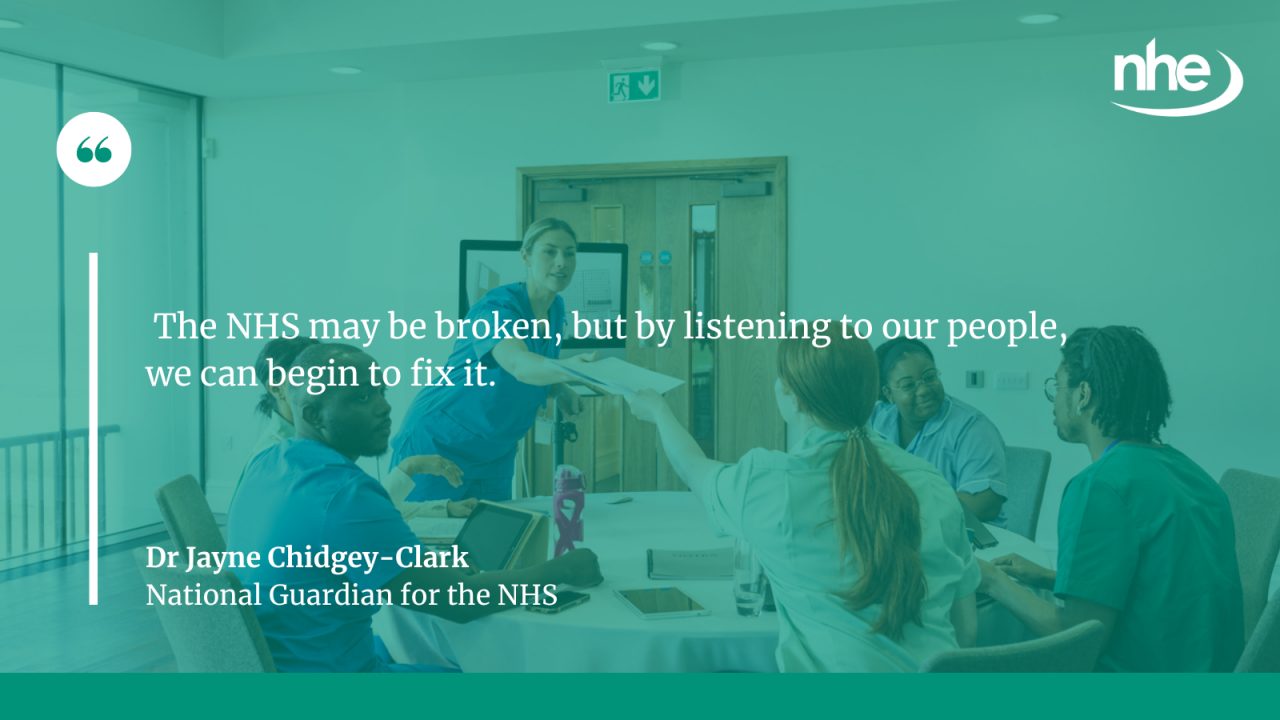England’s national guardian, Dr Jayne Chidgey-Clark, has said the “broken” NHS can be fixed if we begin listening to staff, after new analysis showed the declining perceptions of the freedom to speak up process.
The National Guardian Office’s analysis shows that the number of people who feel secure raising concerns about unsafe clinical practice in the NHS has reached a five-year low.
Overall, around seven in 10 (71.3%) respondents to the NHS Staff Survey reported feeling safe to speak up about unsafe clinical practice, with approximately 11 in 20 (56.8%) believing their organisation would address such concerns.
Slightly over three in five (62.3%) said they felt safe to speak up about anything, with half (50.1%) believing these concerns would be addressed.
A combination of these answers forms the freedom to speak up sub-score, which is declining in a number of areas across the NHS. Findings show that:
- the sub-score for acute specialists is the lowest it has been since 2021 when the measure was introduced;
- confidence is draining within integrated boards as 26 out of the 37 organisations that participated in both 2022 and 2023 surveys had deteriorating sub-scores;
- for the medical and dental workforce, confidence in raising clinical safety concerns has fallen by six percentage points since 2021;
- the sub-score for the general management occupational group has worsened over the last two years; and
- the sub-score for those with a long-lasting condition is lower than the workers without a long-lasting condition or illness.

The sub-scores in ambulance services and midwifery has improved, however — up from 5.83 in 2022 to 5.96 in 2023 for the former, and up from 5.94 in 2021 to 6.3 in 2023 for the latter.
Responding to the Listening to the silence: What does the Staff Survey tell us about speaking up in the NHS? report, Dr Chidgey Clark said: “Firstly, there appears to be a say/do gap, where organisations are saying one thing, but workers are experiencing another.
“For example, although the majority (86%) felt their organisation encouraged them to report errors, near misses or incidents, almost 50,000 respondents felt that workers are not treated fairly if involved in this type of incident.”
She added: “This deterioration in confidence has implications for patient safety. These figures must focus the minds of those who lead healthcare organisations.
“If your people feel they cannot speak up about matters affecting patient care, how can you be assured that you are delivering your best for patients?
“When workers have a good experience when they speak up, they share that experience and we will begin to change the conversation of what it means to speak up in healthcare. The NHS may be broken, but by listening to our people, we can begin to fix it.”
Health secretary Wes Streeting has asked lifelong innovator Lord Darzi to conduct an investigation into the NHS to “uncover hard truths” after he declared on his first day of office that the NHS was broken.
Image credit: iStock



















